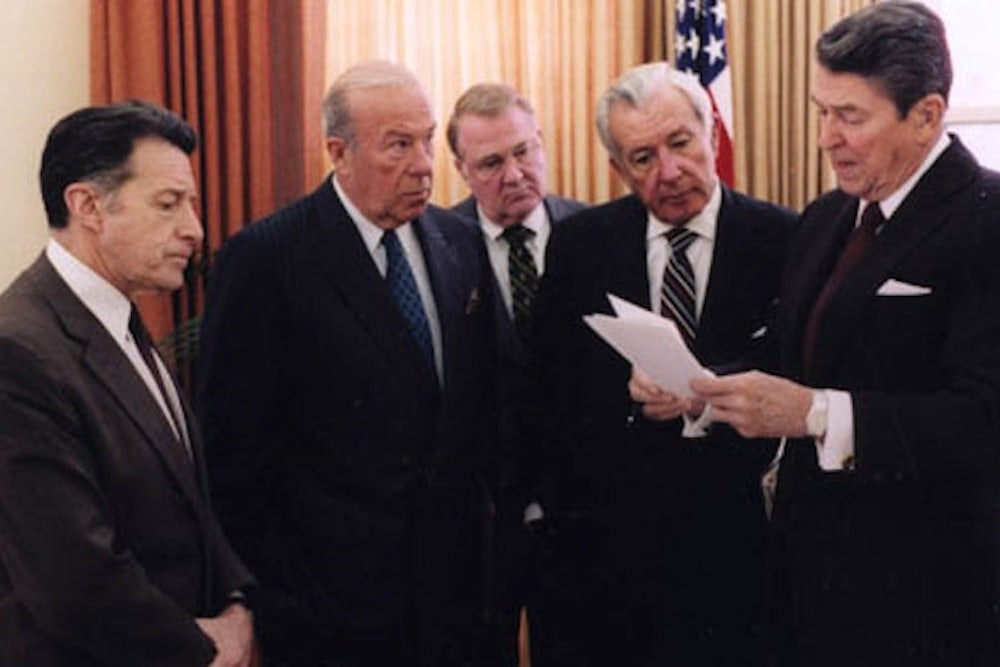Back in the mid-'80s, this country engaged in a tortuous debate over aid to Nicaragua’s Contras. Perhaps you remember the freedom fighters who, with significant aid from the United States government (and from the charming junta of Argentina), waged a war against the also less-than-fastidious Sandinista movement that had overthrown the country’s military dictator. Eventually Congress got sick of the Reagan administration’s aid, and decided to pass the Boland amendments, which forbade directly military support to the counter-revolutionaries. But aid continued, and through the hazy web of dealings now known as Iran-Contra, Reagan faced the biggest scandal of his presidency.
Reading about the Contras today is a strange experience, and not just because concerns about communists in Latin America appear so distant. One can follow the debate, and listen to the different sides, and generally come to the conclusion that American policy was disastrous, but that the Sandanistas themselves were less than saintly. But the question that is so oddly absent is, simply: why on earth was the United States worrying obsessively about a communist government in Nicaragua in the mid-'80s? Sure, the Soviet Union still existed (although it was closer to its end than many people realized). And of course Nicaraguans deserved to live in a free society. But how could it possibly be that in 1985 (!), President Reagan could issue an executive order stating, “I, Ronald Reagan, President of the United States of America, find that the policies and actions of the Government of Nicaragua constitute an unusual and extraordinary threat to the national security and foreign policy of the United States and hereby declare a national emergency to deal with that threat"? So many of the intellectual debates from that time were taking place with the assumption that the make-up of Nicaragua’s government was crucial to the survival of America.
I bring up all this ancient history because the current debate over surveillance, the NSA, Edward Snowden, and government secrecy reminds me a little of the blinkered debate over Nicaragua. Is the government too invasive of our privacy? Was the surveillance legal? Is Snowden a hero? Are we becoming a 1984-like security state? Is this the most effective way to catch terrorists? All these are important questions; and all of them skirt the main issue: Why have we built such a massive security state in the last ten years? (The budget for the Department of Homeland Security is more than twice as much as the entire budget for the Department of Justice).
The president himself has said that the core of Al Qaeda is “on the path to defeat” or “on the run.” There hasn’t been a major attack on the U.S. homeland since 9/11. Terrorists like the Boston bombers can inflict horrific damage, but the threat they pose pales in comparison to other threats—such as gun violence—that we face. (Yes, I know terrorists are terrifying, but if we can choose not to be terrified by homegrown gun-toting maniacs, we can also choose to be less scared of foreign radicals who perpetrate violence here).
The first conversation we should be having is not whether all this surveillance is legal, but whether it makes sense. It’s certainly possible that nuclear weapons are in the reach of terrorists, in which case almost every possible measure seems reasonable. (And certainly terrorism poses a much greater threat to us than Nicaragua ever did). But if the Obama team wants to take credit for helping defeat Al Qaeda, they should have to justify the national security state, rather than simply defend its legality or effectiveness.
Isaac Chotiner is a senior editor at The New Republic. Follow him on Twitter @IChotiner
